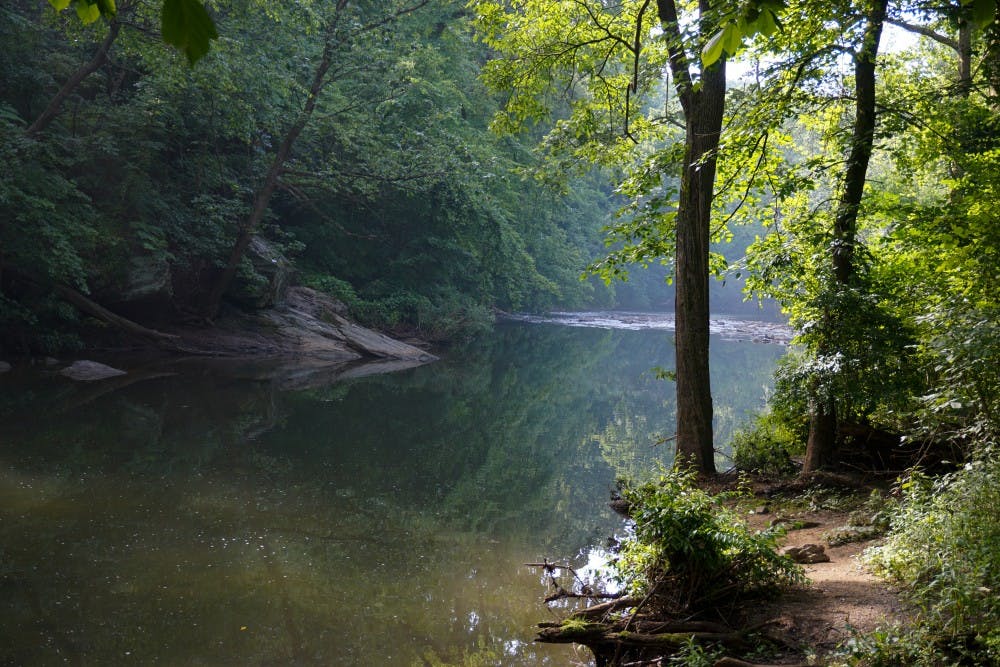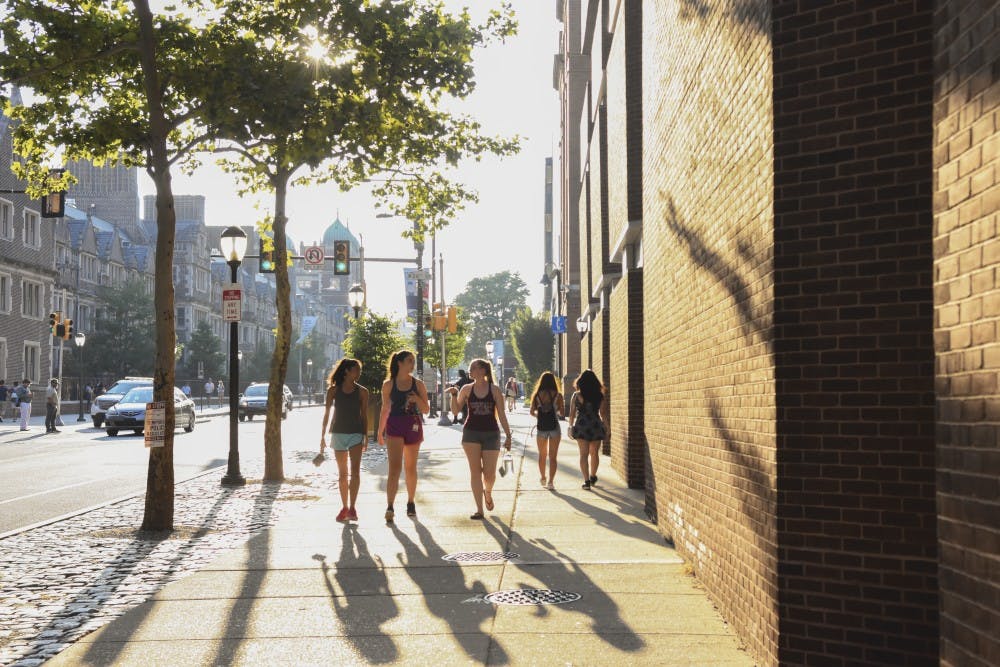
Penn Sustainability's list range from "Evolutionary Ecology" to "Urban Fiscal Policy" and "Environmental Law."
Credit: Sukhmani KaurWith knowledge comes immense responsibility.
The obligation for higher education to translate academic research into action-oriented ideas is no better exemplified than by Penn’s recent launch of Climate Risk Solutions, a summer-long virtual ideation session jointly coordinated by the Wharton Risk Center, the Kleinman Center, the Penn Program on Regulation, and the Faculty Senate.
The project organizers are well aware of the ominous climate risks on the horizon. When discussing the motivation behind the project, Carolyn Kousky, executive director of the Wharton Risk Center, warns that we are at a “crisis point” with climate change. And tackling this phenomenon is what Cary Coglianese, director of the Penn Program on Regulation, considers to be “one of the most consequential challenges of our era.”
Recognizing the urgency for evidence-based policy solutions, the organizers rapidly mobilized to harness the enormous wisdom across the University. Thus far, the project has drawn over thirty faculty members to develop new policy-relevant and solution-oriented ideas that focus on local, state, and national strategies for tackling three interrelated types of climate risk: mitigation (i.e. reducing carbon emissions), adaptation (i.e. reducing risks of physical impacts of extreme events), and transition (i.e. reducing transition risks for businesses and communities in shifting toward a carbon-free economy). These proposed solutions will circulate widely among climate policymakers, including Congressional and federal agency staff, governors, and other climate policy researchers within nonprofits and academia.
The policy proposals pull from a diverse array of disciplines, showcasing Penn’s widespread research on climate policy. Co-directors of Wharton’s Risk Management and Decision Processes Center Bob Meyer and Howard Kunreuther offer strategies to address a set of psychological biases that impact how people adapt to natural disasters. Steven Kimbrough, professor of Operations, Information, and Decisions, discusses how we need to consider a broad range of values for choosing green energy. Ioana Marinescu, assistant professor of economics at the School of Social Policy and Practice, offers solutions to combat the political hurdles of a carbon tax. Mark Alan Hughes, faculty director of the Kleinman Center for Energy Policy, advocates for a clarifying commitment to reduce emissions rather than hydrocarbon combustion as an organizing policy principle.
Widely recognized as central to managing climate risks, interdisciplinary collaboration sheds light on the complex nature of one of society’s most urgent, interconnected, and intractable problems. And because humans have an innate drive to think linearly when problem-solving under uncertainty, tackling climate change requires researchers to break out of what Coglianese refers to as their “disciplinary silos,” and calls for engagement and guidance from all sectors of society. “It requires a vast application of scientific talent” says Kimbrough, “as well as wisdom and creative thinking associated with the arts and the humanities.” Whether ideas are coming from the natural environment, human behavior, or technological systems, Kunreuther amplifies this sentiment: “there is no one industry that has a monopoly over climate change.”

The organizers’ high aspirations for the future implementation of Climate Risk Solutions powerfully redefine Penn’s approach toward changemaking. Within the Penn community, this summer effort intends to inspire richer discussion and learning among students and scholars across campus, as well as introduce researchers around campus to each others’ efforts. Embedded within the vision for broad implementation is the utilization of policy proposals by decision-makers in the public and private arena, and Penn’s contribution to a constructive national and international dialogue on managing climate risks.
And in doing so, the project boldly encapsulates all that must be done to mobilize all members of society in the climate fight.
It disrupts the common misconception that climate change — what has come to be known by policy scientists as a "wicked" problem — is unchangeable by the forces of Mother Nature, and offers aspiration and optimism to break out of the “doom and gloom” messaging reinforced by the status quo.
It pushes past the fruitless debates over whether climate change is real, human-caused, or worthy of concern, and instead forces momentum around the reality of what is and will be, thus quelling the complacency that leaves us stifled within an eleven year deadline.
It demolishes both the innate and forced social barriers that prevent all of us — on the frontlines, on both sides of the aisle, on the perimeter of injustice, and on the Board of Trustees — from taking a step forward.
It places the gravity and urgency of a crisis we consciously ignore in clear view.
It provides all sectors of society with actionable, measurable, and accessible tools to solve the colossal puzzle in front of us.
And, most importantly, it instills hope in an era of uncertainty.
It is the most that we can do as Penn students — as those who will bear the consequences of a warming world for years to come — to read these proposed solutions from our professors who tirelessly strive to protect us from what’s to come. Analyze the various pathways forward. Evaluate their future societal implications. Consider their immense potential to preserve our right to clean air and water. Become part of the conversation.
[New contributions will be added weekly to the Climate Risk Solutions website throughout the summer.]
Correction: A previous version of this article misspelled assistant professor of economics Ioana Marinescu's name. The DP regrets this error.

MAEVE MASTERSON is a College sophomore from Chicago studying Environmental Management and Sustainability. She is an active organizer for Fossil Free Penn, a cellist in the Penn Symphony Orchestra, and a circular economy enthusiast. Her email address is mmaeve@sas.upenn.edu.
The Daily Pennsylvanian is an independent, student-run newspaper. Please consider making a donation to support the coverage that shapes the University. Your generosity ensures a future of strong journalism at Penn.
Donate




